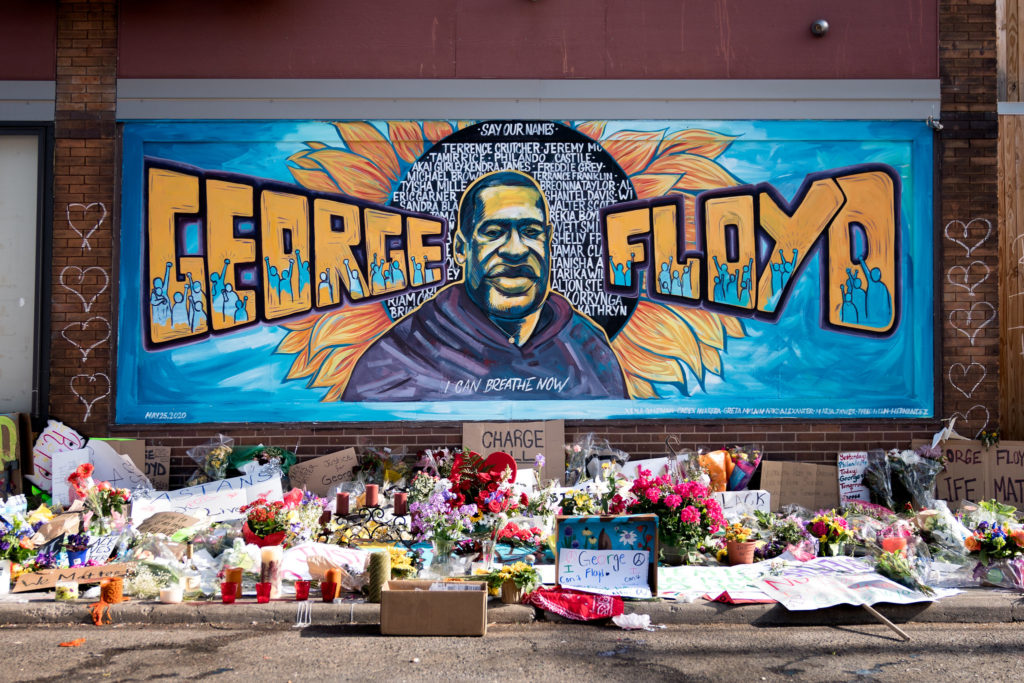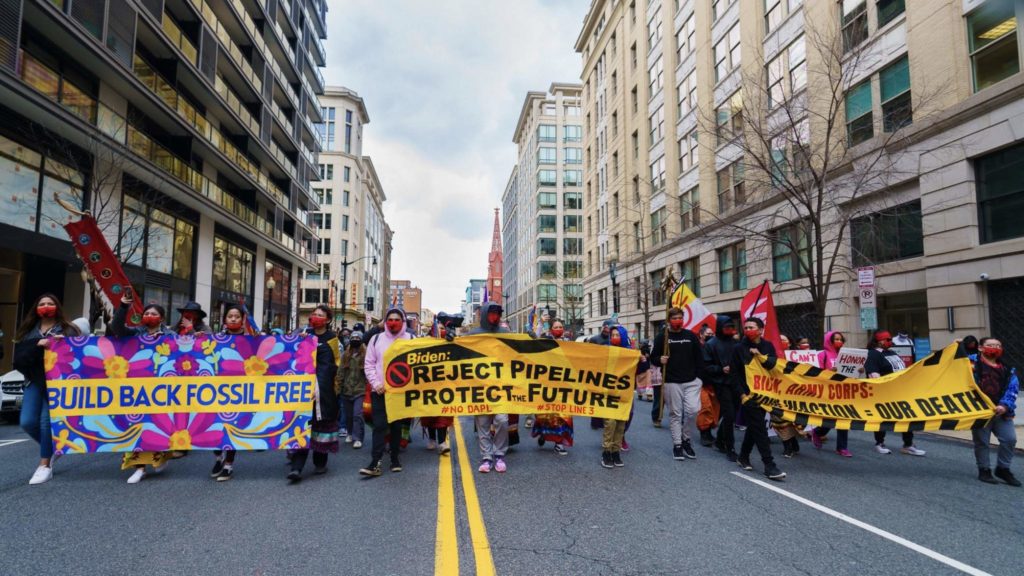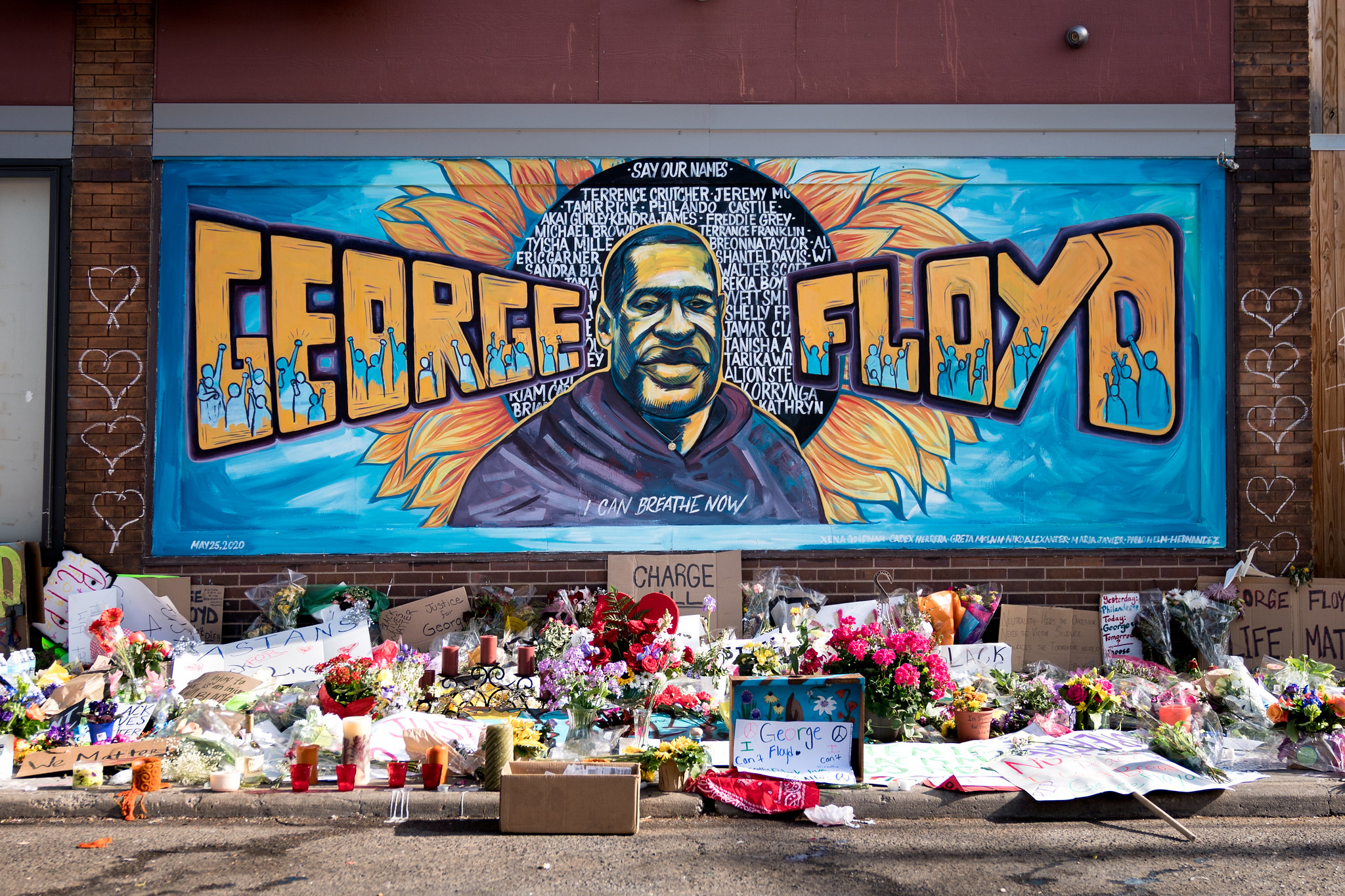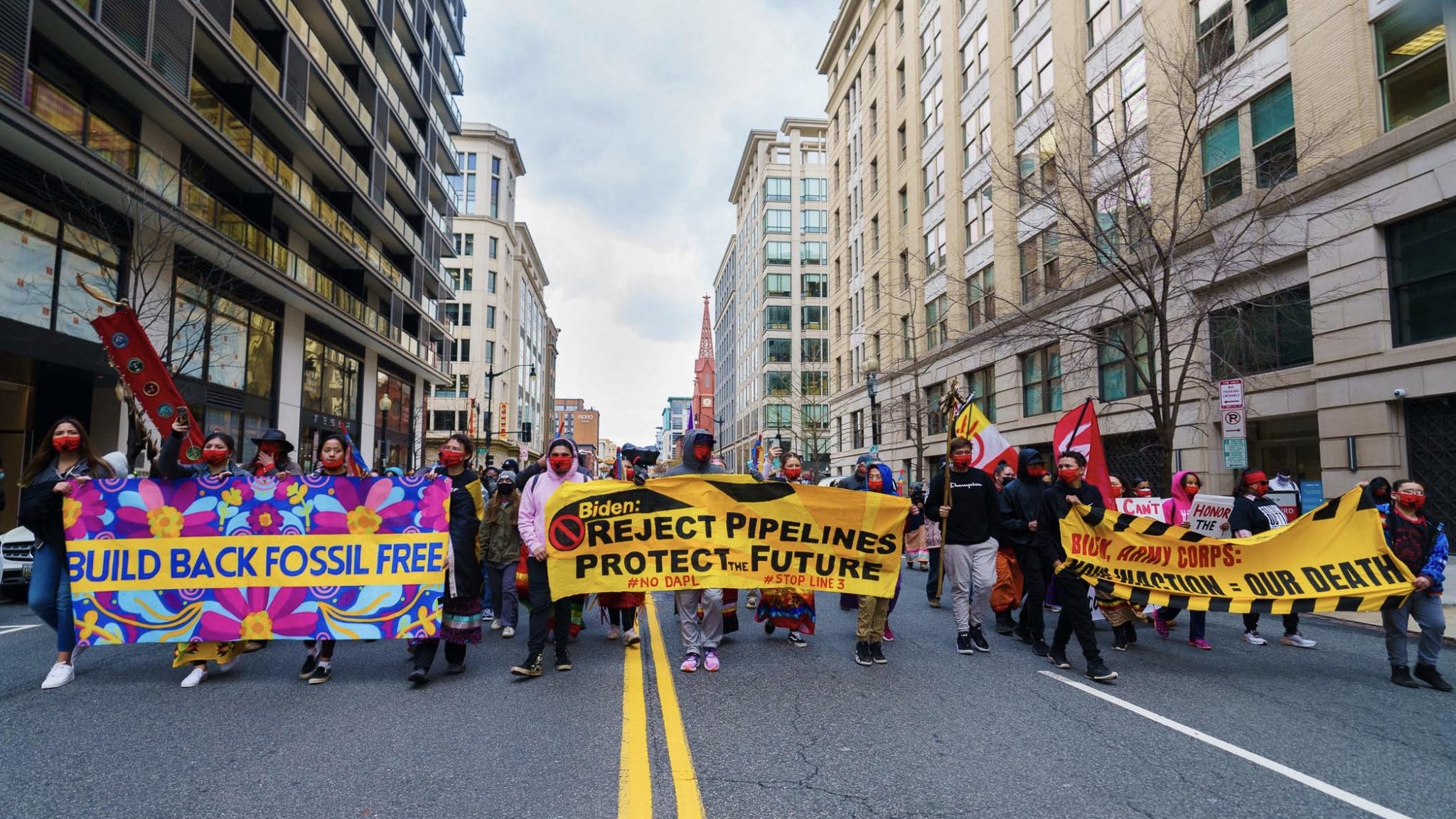Month: April 2021
Toward True Accountability, Healing and Transformation
Toward True Accountability, Healing and Transformation

In the midst of an unprecedented pandemic this past year, courageous grassroots leaders who have organized for racial, economic and social justice for decades sparked an unprecedented global uprising for liberation and justice. Thanks to persistent grassroots organizing and movement building efforts, more people than ever began taking action against the global rise of white supremacy, authoritarianism, and the continued and destructive impact of systemic racism. From a new administration at the federal level to police-free schools and criminal justice reform victories at the local and regional levels, organizing has led to real change.
These movements continue to fight back against police brutality and state violence. They are leading massive marches in the streets, while also advocating in the corridors of power to transform racial capitalism. Even as regressive anti-protest bills make their way through many state legislatures in an attempt to criminalize dissent, our movements are undeterred. They are working to change the narrative in culture and in the media to engage more people in the ongoing push for justice. They are demanding an end to police violence and making concrete demands to end systems of mass incarceration and replace them with transformative solutions that communities need and want.
Even as movements show us how to win, heal and create anew, we know that the work of dismantling white supremacist ideologies that insidiously affect all aspects of our lives is far from over.
Last week’s guilty verdict at the Chauvin trial is just one example of the complicated journey we are collectively on in the work to address the root causes of injustice. We must challenge more than just the symptoms and move toward true accountability, healing and transformation. Even as we momentarily celebrated the guilty Chauvin verdict, 16-year-old Ma’Khia Bryant was being brutally murdered. Not only does this tragedy amplify the racial and gender injustice inherent in policing, the responses that followed her death highlight how racism and patriarchy work in tandem to deny the very humanity of those targeted by state violence.
Today, philanthropy must continue to prioritize funding and investing in grassroots organizing and movement building led by Black, Indigenous and communities of color. Solidaire member Eileen Farbman, who has made a sustained 10-year commitment to the Movement for Black Lives, recently challenged funders to move beyond the “boom and bust model” that releases funding only in response to Black death and suffering. She called instead for generous long-term commitments that give movement leaders space to breathe, recover, and strategize over the long term.
Solidaire echoes that call. Through our Movement Infrastructure Fund and Black Liberation Pooled Fund, we intend to broaden our base of grassroots and movement partnerships and continue to meaningfully resource and flank this beautiful power-building work.
There are so many movement partners to lift up; this ecosystem is indeed vibrant, connected and fierce. Here are just a few that inspire us. Learn more about them, listen to them and follow their lead:
-
- Action St. Louis
- Anti Police Terror Project
- Black LGBTQIA+ Migrant Project (BLMP)
- Black Visions Collective
- Communities Over Cages: Close the Jail ATL Campaign
- Dream Defenders
- Feminist Women’s Health Center
- Florida Restoration Rights Coalition
- Freedom to Thrive
- GINIW Collective
- Law for Black Lives
- Movement for Black Lives (M4BL)
- Solutions not Punishment Coalition (SNAPCo)
- Transgender, Gender Variant, Intersex Justice Project (TGIJP)
Solidaire members also have organized themselves through a Decarceration Working Group, which consistently puts issues of and education on mass incarceration on our collective radars through community building, political education and moving funding to trusted movement organizations.
As a community of donors committed to resourcing social movements for the long-haul, we know this is a critical time for continued, responsive and courageous action to match the courage of our movements. Our collective liberation depends on it. Join us— If you are a Solidaire member, learn more about the decarceration working group. If you are a funder or donor, learn more about our membership and movement partners.
Supporting Frontline Organizations Preserving Our Communities and the Planet
Supporting Frontline Organizations Preserving Our Communities and the Planet

Today is Earth Day, a day we mark to celebrate the efforts to preserve and protect our planet. The first Earth Day was held in 1970 to raise awareness about the importance of clean air and water, which led to the creation of the United States Environmental Protection Agency and the passage of key environmental laws such as the Clean Water Act.
Yet we are in 2021, and communities all over the world—particularly working-class communities and communities of color—are still fighting to have access to their land, clean water and protection from environmental disasters. Fighting for racial justice means fighting for climate justice, because systemic racism makes Black people, Indigenous peoples and people of color far more susceptible to the impacts of climate change, resource exploitation, food insecurity, poor infrastructure, pollution and other health hazards.
As organizers speak out and fight back against exploitative corporations, they are doing so at the risk of their own lives. According to Global Witness, environmental defenders are facing increasing assaults and murders around the world, with three people being killed every week for defending their land and our environment. We honor activists like Berta Cáceres in Honduras, Le My Hanh in Vietnam and so many others who have been killed or attacked for defending their land, water and communities’ resources. We affirm our commitment to investing in the protection of climate justice organizers, so they can continue this critical work.
Solidaire members have been dedicated to funding visionary movement organizations that are working to advance climate justice from the ground up. Our member-led Climate Justice Working Group at Solidaire Network has moved resources to new and established climate justice movement formations working to defend land and water. Our members also take time to learn and organize others in their families and communities to fund people-powered climate solutions.
Here are some of our recent Climate Justice grantee partners working on the frontlines at a local, regional and national level:
-
-
Climate Justice Alliance envisions a world in which fairness, equity and ecological rootedness are core values. Climate Justice Alliance members have won significant victories against polluting and extractive industries. They are building local alternatives that center traditional ecological and cultural knowledge and create a pathway for a regenerative future.
-
-
-
GINIW is an Indigenous-women, 2-spirit led frontline resistance to protect our Mother, defend the sacred and live in balance. They are currently protesting against the Line 3 pipeline on Anishinaabe lands in so-called Minnesota.
-
-
Gulf Coast Center for Law and Policy:
-
Gulf Coast Center for Law and Policy is a non-profit, public interest law firm and justice center with a mission to advance structural shifts toward climate justice and ecological equity in communities of color on the frontline of climate change. Since 2014, GCCLP has served thousands of residents throughout Louisiana, Texas, Alabama, Mississippi, and Florida through its disaster legal services, community programming, and human rights-based trainings. Check out their grassroots work and policy platform through the regional coalition, “Gulf South for a Green New Deal.”
-
-
-
Indigenous Climate Action inspires, connects and supports Indigenous Peoples, reinforcing their place as leaders in climate change discourse and driving solutions for today and tomorrow. Their work is grounded in gatherings, resources and tools, amplifying Indigenous voices and supporting Indigenous sovereignty.
-
-
-
Mobile Environmental Justice engages and organizes with the most threatened communities in Mobile, Alabama in order to defend the inalienable rights to clean air, water, soil, health, and safety and to take direct action when the government fails to do so, ensuring community self-determination.
-
-
National Black Food and Justice Alliance
-
NBFJA is a coalition of Black-led organizations aimed at developing Black leadership, supporting Black communities, organizing for Black self-determination, and building institutions for Black food sovereignty & liberation.
-
-
-
NDN Collective is an Indigenous-led organization dedicated to building Indigenous power. Through organizing, activism, philanthropy, grantmaking, capacity-building and narrative change, NDN Collective is creating sustainable solutions on Indigenous terms.
-
-
-
Seventh Generation Fund focuses on cultural revitalization, leadership development, tribal sovereignty, and culturally appropriate economic development in Indigenous communities. Their work includes grantmaking, fiscal sponsorship for community-based Native organizations, training and technical assistance, workshops and conferences.
-
-
-
The Unist’ot’en (C’ihlts’ehkhyu / Big Frog Clan) are the original Wet’suwet’en Yintah Wewat Zenli distinct to the lands of the Wet’suwet’en. Their resistance camp has been defending their indigenous territory against companies (particularly Trans-Canada, Enbridge, and Pacific Trails) proposing tar sands and fracking pipelines, which would be a huge threat to the watershed, as well as the plants, animals and communities that depend on them.
-
Additional environmental, climate, and community focused organizations Solidaire members have supported:
-
-
Building a solidarity economy in Jackson, Mississippi, Cooperation Jackson is anchored by a network of cooperatives and worker-owned, democratically self-managed enterprises. Their Sustainable Communities Initiative aims to help stabilize rents, provide affordable “green” housing, create quality living wage jobs, and lay a foundation for the sustainable transformation of Jackson’s economy through cooperative enterprise and solidarity economics.
-
-
-
A collaboration between Global Greengrants Fund, Grassroots International, Thousand Currents, and Urgent Action Fund for Women’s Human Rights, The Clima Fund mobilizes philanthropy by investing in on-the-ground leaders behind the most sustainable and effective solutions to our global climate crisis.
-
-
-
Fish Not Oil is a joint project by South Durban Community Environmental Alliance in South Africa and Health of Mother Earth Foundation in Nigeria. The Fish Not Oil project is created, made up of, and run by Indigenous peoples from across Africa, and is one of the only voices on the African continent which is arguing that fisher communities should also be considered as part of the agroecology movement in order to create a more coordinated and potent attack on corporate power while also contributing to creating more encompassing pathways and practices of the alternatives.
-
-
-
Green Justice Coalition is a partnership of community based, environmental and labor allies who lead campaigns in Massachusetts that have a meaningful impact on working class people and communities of color. Some of those campaigns include equity in clean energy policy, environmental health protections for all, and community-owned microgrids.
-
-
-
Honor the Earth uses indigenous wisdom, music, art, and the media to raise awareness and support for Indigenous environmental issues. It’s the only Native organization that provides both financial support and organizing support to Native environmental initiatives.
-
-
-
La Via Campesina is an international movement bringing together millions of peasants, small and medium size farmers, landless people, rural women and youth, indigenous people, migrants and agricultural workers from around the world to promote peasant agriculture and local seeds, and defend food sovereignty. Watch this video “Forming in Movement” in celebration of International Peasant Fighting Day to learn more about their organizing.
-
-
-
Native Organizers Alliance is a training and organizing network dedicated to building the capacity of Native tribes, traditional societies, and community groups to make transformational change. It also provides a forum for Native leaders and organizers to work in collaboration with each other and promote their work with non-Native national allies. They recently organized a campaign with other partners that led to the historic appointment of Deb Haaland as Secretary of the Interior, the first Native American to hold that position.
-
-
NAACP Environmental Justice program
-
The Environmental and Climate Justice Program within the NAACP works at addressing the many practices that are harming communities nationwide and worldwide and the policies needed to rectify these impacts and advance a society that fosters sustainable, cooperative, regenerative communities that uphold all rights for all people in harmony with the earth.
-
-
-
It Takes Roots is a multiracial effort led by women and gender oppressed people of color and Indigenous peoples on the frontlines of racial, housing and climate justice across the country. ITR engages in both trans-local power building and mass mobilizations and collaborates closely with organizations such as Movement for Black Lives, the Majority, People’s Climate Movement, the Design Action Collective, and US Food Sovereignty Alliance.
-
-
Indigenous Environmental Network
-
IEN is an alliance of Indigenous Peoples whose shared mission is to protect the sacredness of Earth Mother from contamination & exploitation by respecting and adhering to Indigenous knowledge and natural law. IEN supports frontline organizations and consults and advises members of their network to strengthen their ability to lead effective community organizing, coalition building, legal and policy strategy, media and narrative creation, and non-violent direct action.
-

